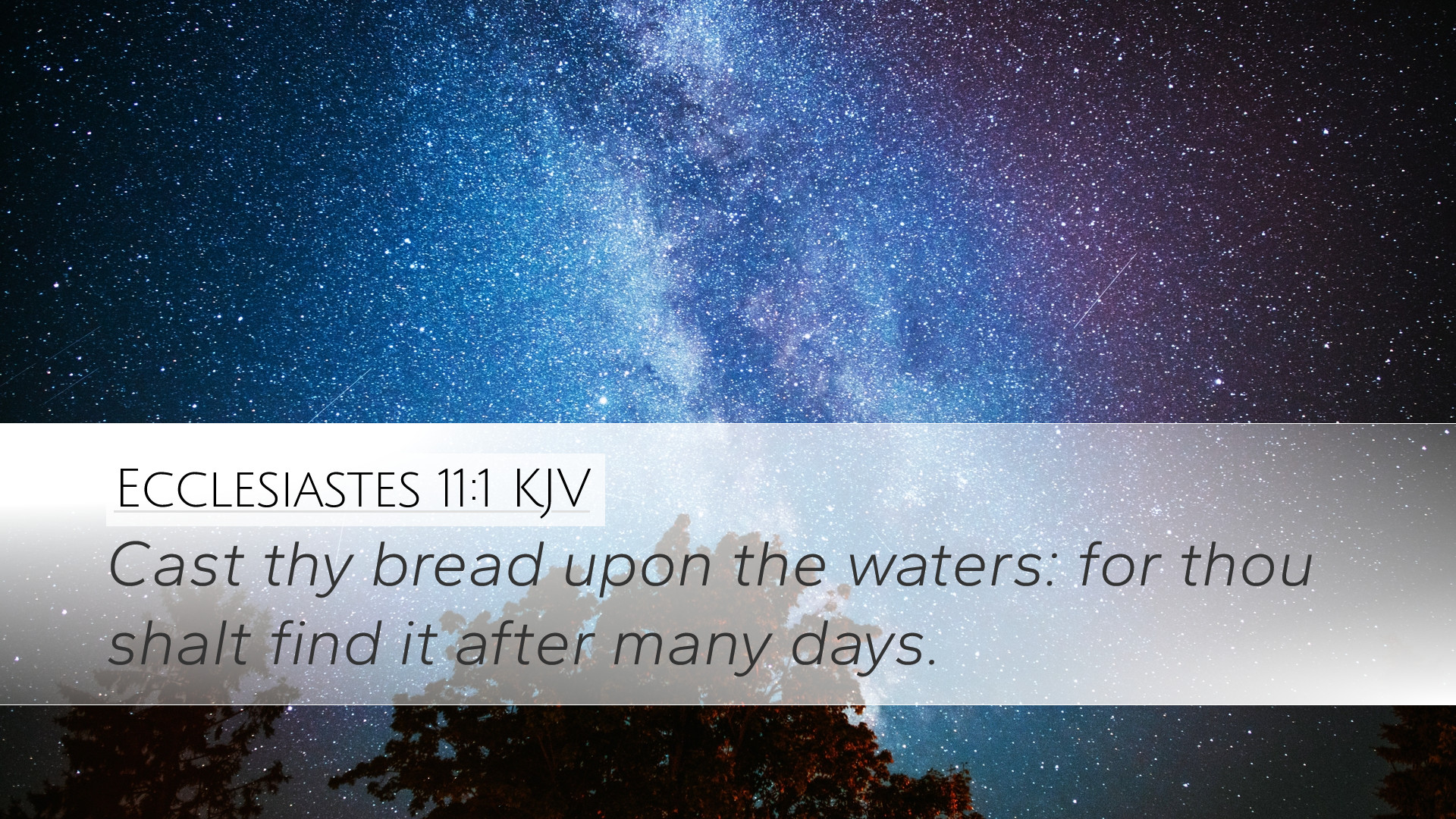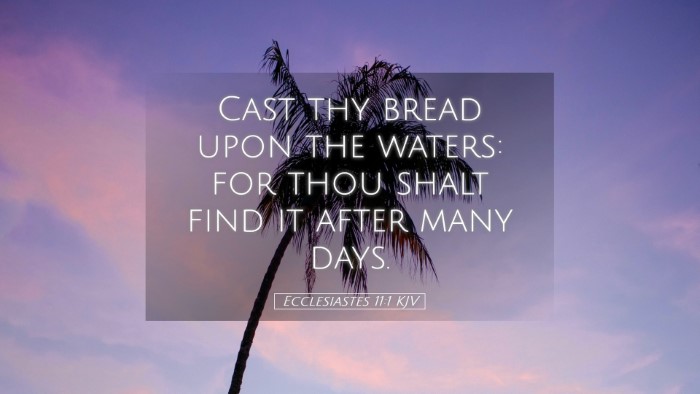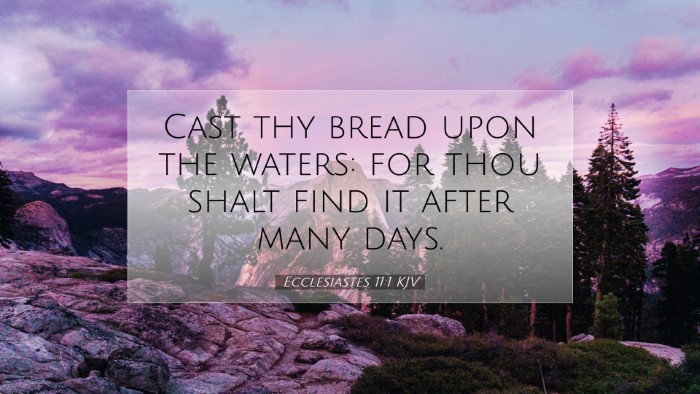Old Testament
Genesis Exodus Leviticus Numbers Deuteronomy Joshua Judges Ruth 1 Samuel 2 Samuel 1 Kings 2 Kings 1 Chronicles 2 Chronicles Ezra Nehemiah Esther Job Psalms Proverbs Ecclesiastes Song of Solomon Isaiah Jeremiah Lamentations Ezekiel Daniel Hosea Joel Amos Obadiah Jonah Micah Nahum Habakkuk Zephaniah Haggai Zechariah MalachiEcclesiastes 11:1
Ecclesiastes 11:1 KJV
Cast thy bread upon the waters: for thou shalt find it after many days.
Ecclesiastes 11:1 Bible Commentary
Commentary on Ecclesiastes 11:1
Verse Reference: Ecclesiastes 11:1 - "Cast your bread upon the waters, for after many days you will find it again."
This verse presents a profound and compelling analogy regarding the act of giving and the unfolding of divine providence. In this commentary, we will explore insights from renowned public domain commentaries to unfold the rich meanings embedded in this scripture.
General Overview
The author of Ecclesiastes, traditionally believed to be King Solomon, engages in the exploration of life's meaning, urging his readers to ponder the consequences of their actions and the uncertainties of life. This particular verse serves as a pivotal reminder of the principles of generosity and the eventual return of our efforts.
Meaning and Implications
Matthew Henry's Commentary:
Matthew Henry highlights the importance of taking initiative in good works. The metaphor of casting bread upon waters symbolizes engaging in acts of charity and kindness, despite the uncertainty of immediate reward. The essence of this verse stresses a faith-filled approach to life, encouraging believers to step out and act benevolently, trusting that God will bring forth a return on such acts, though it may be in unexpected ways and times.
Albert Barnes' Notes:
Barnes reflects on the practical wisdom of giving. He suggests that casting bread upon the waters reflects both a risk and a hope. To cast something, especially bread, (a staple of life), into uncertain waters indicates a willingness to sacrifice for the greater good. Thus, the ‘after many days’ stipulation teaches patience and reliance on God’s timing for the rewards of generosity.
Adam Clarke's Commentary:
Clarke explicates the verse with an emphasis on the broader social context. The act of giving, or ‘casting bread’, can be seen as engaging with the community and investing in relationships. Clarke distinguishes between the immediate and long-term returns, encouraging readers to embrace the idea of investing for future dividends in both material and spiritual senses.
Theological Reflections
- Faith and Generosity:
Generosity is intrinsically linked to faith. Just as one throws bread into the waters without certainty of return, believers are called to trust in God’s provision, reflective of the character of God as a generous giver (James 1:17).
- Uncertainty of Life:
The metaphor acknowledges the unpredictable nature of existence. Life's rivers can be tumultuous and uncertain; thus, the encouragement to ‘cast’ symbolizes a proactive spirit amidst uncertainty, a theme reinforced throughout Ecclesiastes.
- Long-term Perspective:
The emphasis on ‘many days’ calls for a long-term view in our endeavors. This aligns with biblical wisdom that often illustrates the importance of patience and perseverance, drawing parallels to the agricultural metaphor found in Galatians 6:9.
Practical Applications
From the insights garnered, we can derive several practical applications:
- Engagement in Generosity: Christians are encouraged to actively seek opportunities for generosity, not just within familiar circles but extending outward into the world, reflecting the inclusivity of God's grace.
- Patience in Giving: Understand that the fruits of generosity may not be immediate. This demands a posture of trust in God's ultimate justice and provision.
- Community Investment: Strengthening community ties through acts of kindness can lead to long-term spiritual and relational dividends.
Conclusion
In Ecclesiastes 11:1, we find a timeless principle that resonates deeply within the Christian experience. The call to cast one's bread upon the waters invites believers to engage in acts of kindness and generosity, bearing in mind the promise of eventual returns from such investments. As elucidated by the commentaries of Matthew Henry, Albert Barnes, and Adam Clarke, the multifaceted implications of this verse ring true for pastors, students, and scholars alike, urging us to live lives marked by faith-filled generosity, trusting in God's perfect timing and providence.


